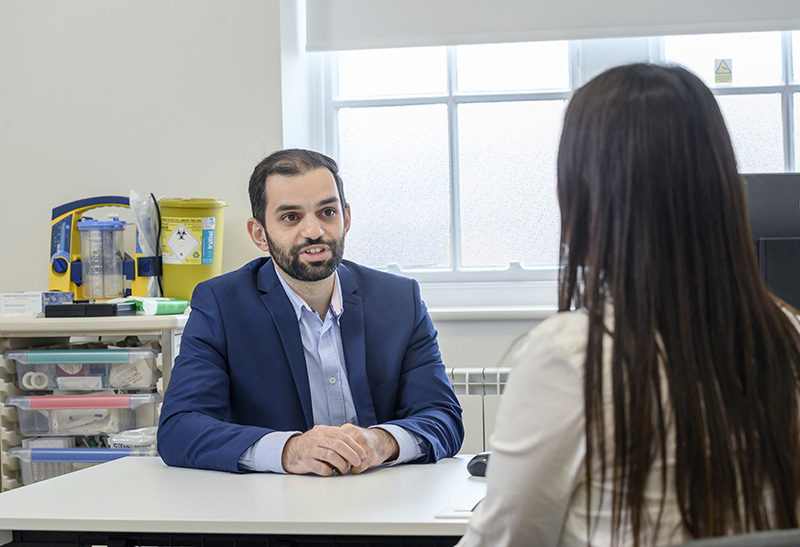Contents
Polyps and Cysts

Polyps and cysts are common growths that can develop in various parts of the body. While often harmless, some may require further investigation, treatment, or removal. At The New Foscote Hospital, our expert consultants and advanced diagnostic facilities help identify and manage these conditions with a focus on patient-centred care.
Understanding Polys
Polyps are small, abnormal tissue growths that commonly appear in areas like the digestive tract, uterus, and nasal passages. Though many are benign, some may require removal to prevent complications.
Types of Polyps We Treat
- Bowel (Colon) Polyps – Growths in the lining of the large intestine that may develop into cancer if left untreated.
- Uterine Polyps – Small overgrowths in the uterine lining, often causing irregular bleeding.
- Nasal Polyps – Soft, painless growths in the nasal passages, potentially leading to congestion or breathing difficulties.
- Gastric & Esophageal Polyps – Often found during routine endoscopies, these polyps may require monitoring or removal if symptomatic.
Understanding Cysts
Cysts are fluid-filled sacs that can form anywhere in the body, including the ovaries, skin, liver, and kidneys. While many cysts are harmless, some can grow, become painful, or indicate an underlying health condition.
Types of Cysts We Treat
- Ovarian Cysts – Fluid-filled sacs that develop in or on the ovaries, sometimes causing discomfort or affecting fertility.
- Sebaceous Cysts – Small lumps beneath the skin, often painless but sometimes requiring drainage or removal.
- Liver & Kidney Cysts – Typically benign, but larger cysts may require monitoring or intervention.
- Ganglion Cysts – Commonly found near joints and tendons, these cysts can sometimes cause pain or mobility issues.
Symptoms to Watch for
While some polyps and cysts are harmless, some may cause symptoms such as:
- Unexplained bleeding (digestive tract, uterine, or nasal)
- Persistent abdominal pain or bloating
- Changes in bowel habits (for colon polyps)
- Chronic nasal congestion or difficulty breathing
- Noticeable lumps under the skin
How we Diagnose Polys and Cysts
At The New Foscote Hospital, we use state-of-the-art diagnostic tools, including:
- Ultrasound & MRI scans – For detecting and evaluating cysts.
- Endoscopy & Colonoscopy – To identify and remove polyps in the digestive tract.
- Biopsy & Lab Testing – To determine if a polyp or cyst is benign or requires further attention.
Treatment Options
- Observation & Monitoring – Small, non-problematic polyps and cysts may simply need periodic review.
- Minimally Invasive Removal – Techniques such as polypectomy or laparoscopic surgery are available for symptomatic or high-risk growths.
- Medication – Certain polyps and cysts respond to hormonal or anti-inflammatory treatments.
- Surgical Intervention – For larger or problematic cysts and polyps, our expert consultants provide advanced surgical solutions.
Private GP Appointments & Specialist Care

If you have symptoms of polyps or cysts, The New Foscote Hospital offers private GP consultations and specialist referrals.
- Same-day appointments available
- No need to be registered with the hospital
- Direct billing options for insured patients
Consultation Fee: £100 for a 30-minute private GP appointment. Any additional costs, such as for imaging, endoscopy, or specialist referrals, will be discussed transparently before proceeding.
26 March 2025


